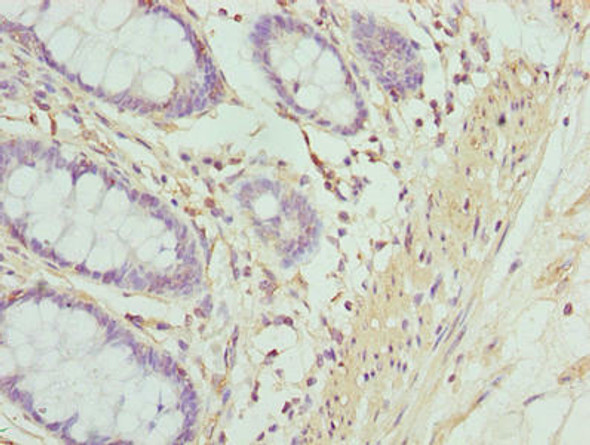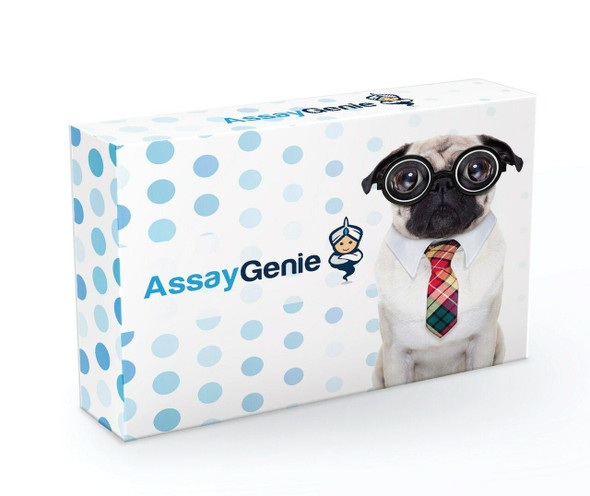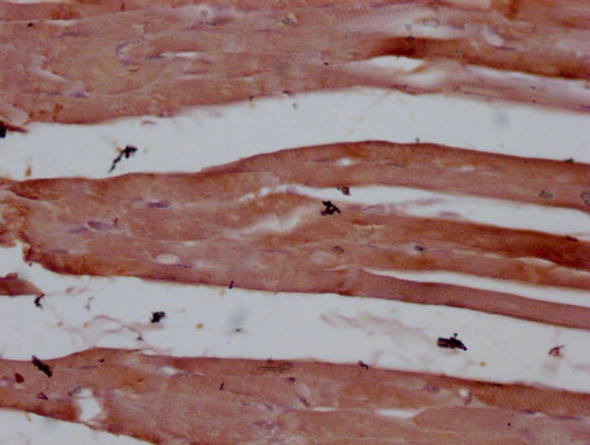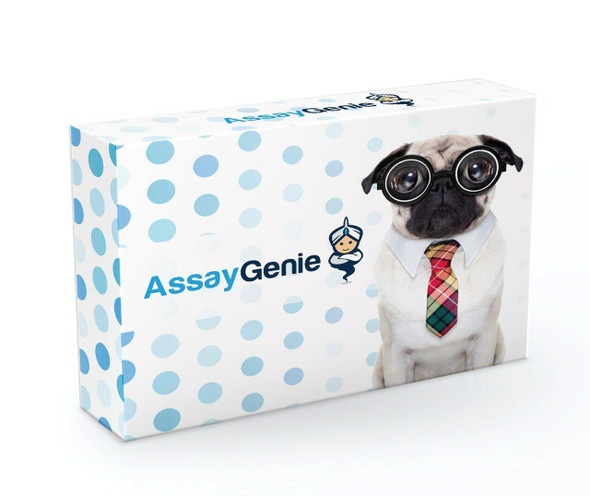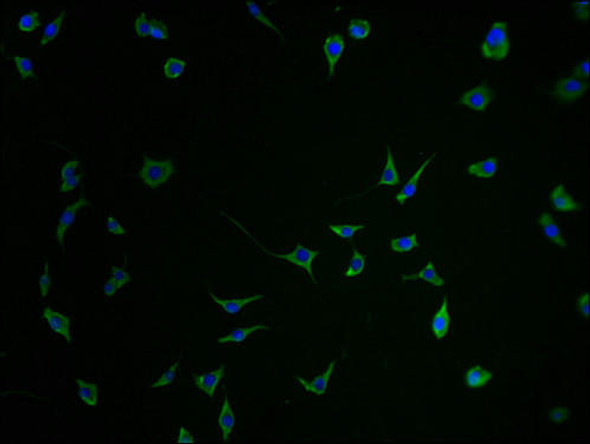Description
ACTG2 Antibody (PACO06229)
The ACTG2 Polyclonal Antibody (PACO06229) is a valuable tool for researchers studying ACTG2, a gene associated with smooth muscle contraction and motility in various tissues, including the gastrointestinal tract. This antibody, generated in rabbits, demonstrates high reactivity with human samples and is suitable for use in Western blot applications. By specifically binding to the ACTG2 protein, this antibody allows for the detection and analysis of ACTG2 in different cell types, making it ideal for investigations related to smooth muscle function in physiological and pathological conditions.ACTG2 is a key regulator of smooth muscle contractility and plays a crucial role in maintaining the functionality of smooth muscle cells.
Dysregulation of ACTG2 has been linked to a variety of gastrointestinal disorders, such as intestinal pseudo-obstruction and chronic constipation. Research into the mechanisms underlying ACTG2 function is essential for developing a better understanding of these conditions and potential targeted therapies.By utilizing the ACTG2 Polyclonal Antibody (PACO06229), researchers can further explore the role of ACTG2 in smooth muscle biology and its implications for gastrointestinal health. This antibody offers a reliable tool for investigating the molecular mechanisms underlying smooth muscle function, paving the way for advancements in the diagnosis and treatment of gastrointestinal disorders.
| Antibody Name: | ACTG2 Antibody (PACO06229) |
| Antibody SKU: | PACO06229 |
| Size: | 50ug |
| Host Species: | Rabbit |
| Tested Applications: | ELISA, WB, IHC, IF |
| Recommended Dilutions: | ELISA:1:20000, WB:1:500-1:2000, IHC:1:100-1:300, IF:1:200-1:1000 |
| Species Reactivity: | Human, Mouse, Rat |
| Immunogen: | Synthesized peptide derived from the N-terminal region of human Actin α 3. |
| Form: | Liquid |
| Storage Buffer: | Liquid in PBS containing 50% glycerol, 0.5% BSA and 0.02% sodium azide. |
| Purification Method: | The antibody was affinity-purified from rabbit antiserum by affinity-chromatography using epitope-specific immunogen. |
| Clonality: | Polyclonal |
| Isotype: | IgG |
| Conjugate: | Non-conjugated |
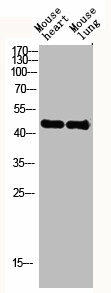 | Western Blot analysis of mouse-heart mouse-lung cells using Actin alpha 3 Polyclonal Antibody. |
 | Western Blot analysis of COLO205 cells using Actin alpha 3 Polyclonal Antibody. |
| Synonyms: | ACTG2; ACTA3; ACTL3; ACTSG; Actin; γ-enteric smooth muscle; α-actin-3; γ-2-actin; Smooth muscle γ-actin |
| UniProt Protein Function: | ACTG2: Actins are highly conserved proteins that are involved in various types of cell motility and are ubiquitously expressed in all eukaryotic cells. Polymerization of globular actin (G-actin) leads to a structural filament (F-actin) in the form of a two-stranded helix. Each actin can bind to 4 others. Belongs to the actin family. |
| UniProt Protein Details: | Protein type:Contractile; Cytoskeletal; Motility/polarity/chemotaxis Chromosomal Location of Human Ortholog: 2p13.1 Cellular Component: cytoplasm; cytosol; extracellular space; filopodium; lamellipodium Biological Process: muscle contraction Disease: Visceral Myopathy |
| NCBI Summary: | Actins are highly conserved proteins that are involved in various types of cell motility and in the maintenance of the cytoskeleton. Three types of actins, alpha, beta and gamma, have been identified in vertebrates. Alpha actins are found in muscle tissues and are a major constituent of the contractile apparatus. The beta and gamma actins co-exist in most cell types as components of the cytoskeleton and as mediators of internal cell motility. This gene encodes actin gamma 2; a smooth muscle actin found in enteric tissues. Alternative splicing results in multiple transcript variants encoding distinct isoforms. Based on similarity to peptide cleavage of related actins, the mature protein of this gene is formed by removal of two N-terminal peptides.[provided by RefSeq, Dec 2010] |
| UniProt Code: | P63267 |
| NCBI GenInfo Identifier: | 54036679 |
| NCBI Gene ID: | 72 |
| NCBI Accession: | P63267.1 |
| UniProt Secondary Accession: | P63267,P12718, Q504R1, Q6FI22, B2R7E7, B4E315, D6W5H8 E9PG30, |
| UniProt Related Accession: | P63267 |
| Molecular Weight: | 37,083 Da |
| NCBI Full Name: | Actin, gamma-enteric smooth muscle |
| NCBI Synonym Full Names: | actin, gamma 2, smooth muscle, enteric |
| NCBI Official Symbol: | ACTG2 |
| NCBI Official Synonym Symbols: | ACT; ACTE; VSCM; ACTA3; ACTL3; ACTSG |
| NCBI Protein Information: | actin, gamma-enteric smooth muscle |
| UniProt Protein Name: | Actin, gamma-enteric smooth muscle |
| UniProt Synonym Protein Names: | Alpha-actin-3; Gamma-2-actin; Smooth muscle gamma-actin |
| Protein Family: | Actin |
| UniProt Gene Name: | ACTG2 |
| UniProt Entry Name: | ACTH_HUMAN |






